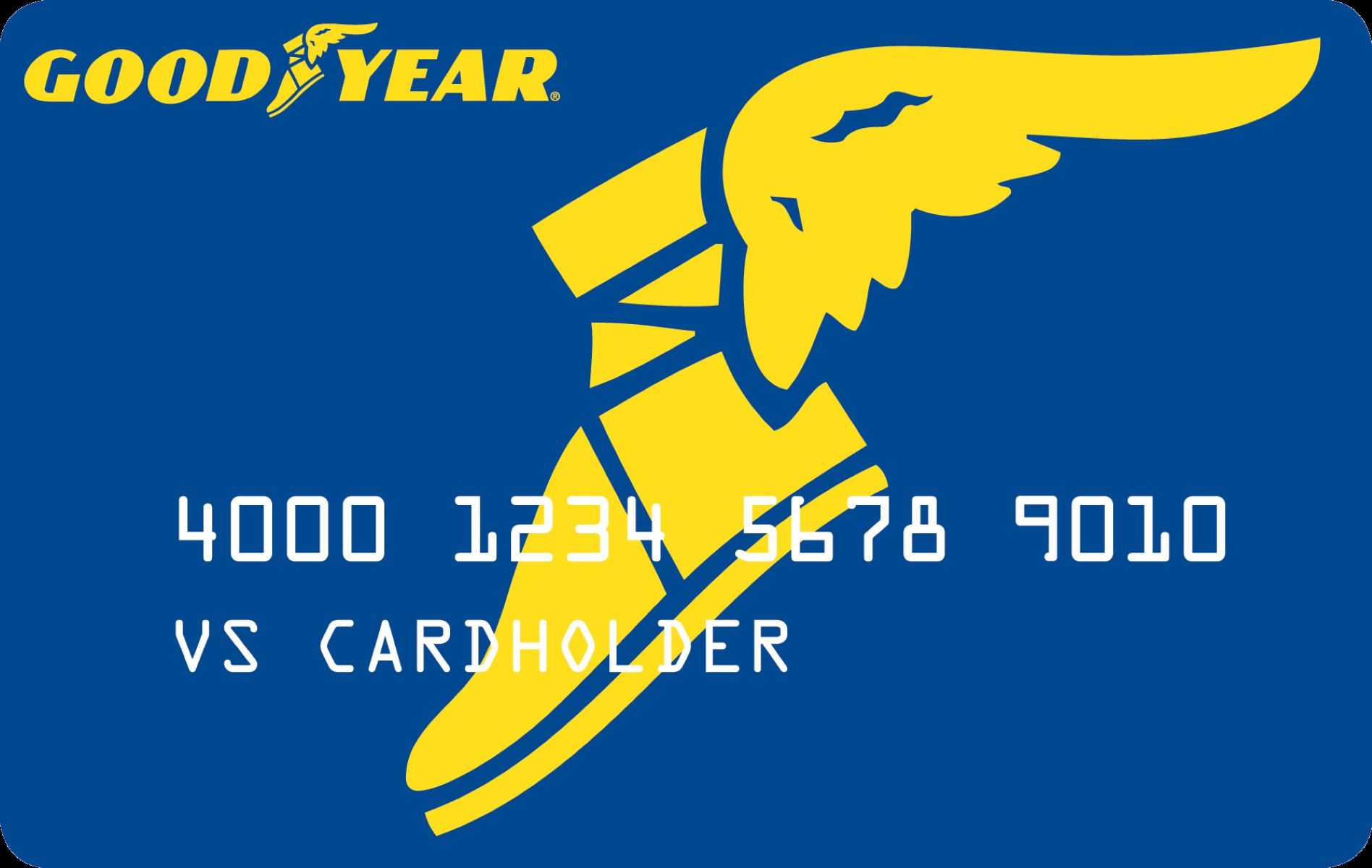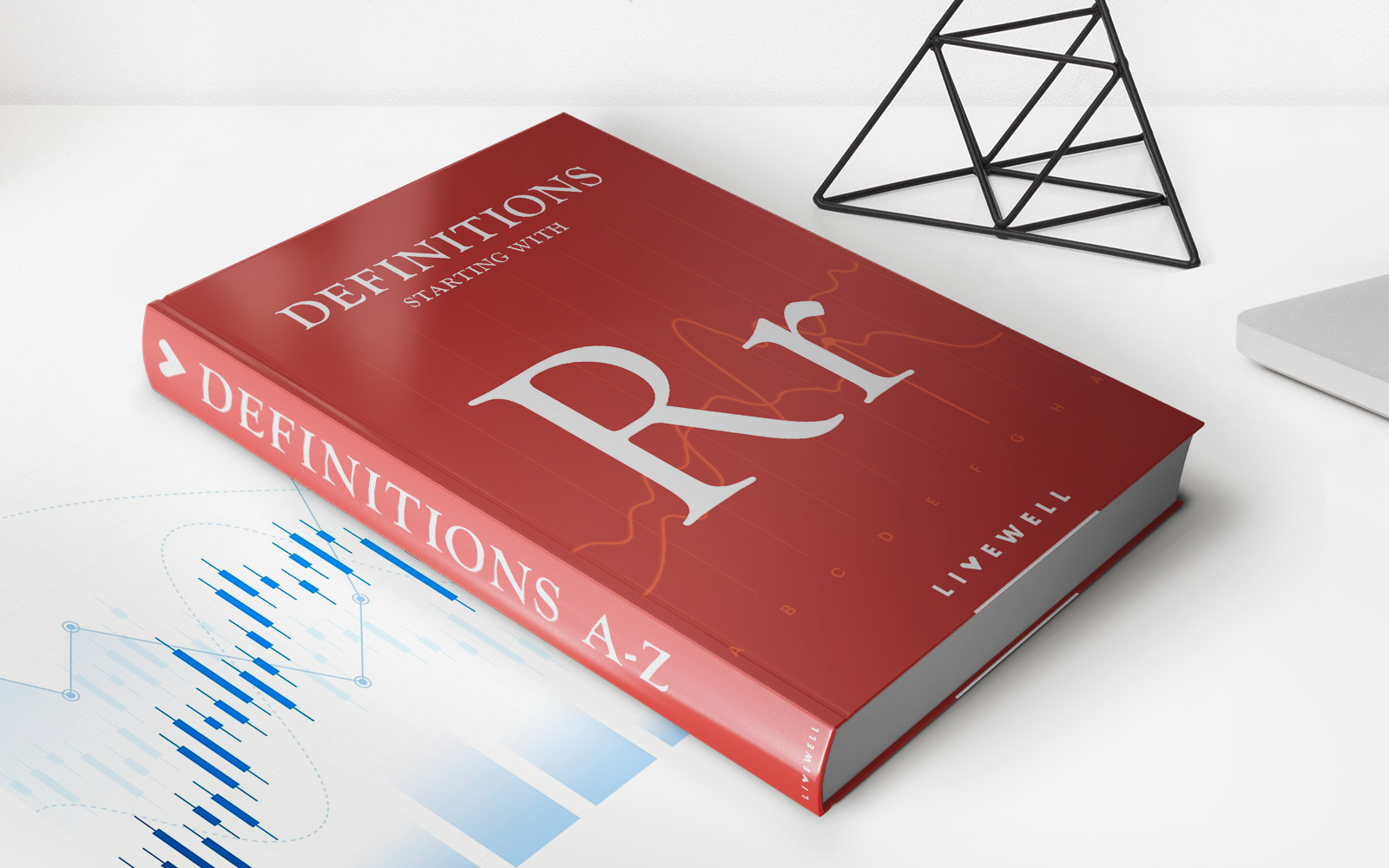

Finance
How Soon Can You Reapply For A Credit Card
Modified: January 7, 2024
Looking to reapply for a credit card? Find out how soon you can do so and more with our expert advice and helpful finance tips.
(Many of the links in this article redirect to a specific reviewed product. Your purchase of these products through affiliate links helps to generate commission for LiveWell, at no extra cost. Learn more)
Table of Contents
Introduction
Applying for a credit card can be an exciting opportunity to access financial flexibility and rewards. However, there may come a time when you find yourself in need of reapplying for a credit card. Whether it is due to closing an existing card, wanting to explore better terms, or addressing changes in your financial situation, knowing when and how to reapply is crucial.
Reapplying for a credit card requires careful consideration of various factors that can impact your chances of approval. From credit score considerations to credit card issuer policies, understanding these elements can help you navigate the reapplication process with confidence. Moreover, strategic timing and avoiding common mistakes can significantly improve your chances of success.
In this article, we will delve into the factors that affect the timing for reapplying for a credit card. We will explore credit card issuer policies, credit score considerations, the waiting period after card closure, and the impact on your credit report. Additionally, we will provide tips on strategic timing for reapplication and highlight common mistakes to avoid.
Whether you are seeking to rebuild your credit score, take advantage of lucrative rewards, or reestablish your credit history, this comprehensive guide will equip you with the knowledge you need to make informed decisions. Let us delve into the details and explore the factors that can influence when and how soon you can reapply for a credit card.
Factors affecting reapplication timing
The timing for reapplying for a credit card can be influenced by various factors that play a significant role in the approval process. Understanding these factors will help you determine the optimal time to submit your application and maximize your chances of success. Let’s explore the key elements that affect reapplication timing:
- Credit card issuer policies: Each credit card issuer has its own policies regarding reapplication. Some issuers may require a waiting period before you can reapply, while others may have specific restrictions based on your previous relationship with them. It is essential to familiarize yourself with the policies of the issuer you are considering to ensure you meet their requirements.
- Credit score considerations: Your credit score plays a crucial role in the approval process. If your credit score has recently suffered a significant drop, it may be beneficial to wait until it improves before reapplying. On the other hand, if your credit score has improved since your previous application, it might be an opportune time to reapply and increase your chances of approval.
- Waiting period after card closure: If you have recently closed a credit card account, it is important to consider the waiting period before reapplying. Some credit card issuers may require you to wait a specific amount of time, such as six months or a year, before they will consider your new application. This waiting period allows them to assess your creditworthiness and establish a clear history.
- Impact on credit report: Opening and closing credit card accounts can impact your credit report. Too many applications and closures within a short period of time may raise red flags for creditors and negatively affect your credit score. It is essential to space out your applications strategically and consider the potential impact on your credit report.
These factors are interconnected and should be carefully considered to determine the ideal timing for reapplying for a credit card. Assessing each aspect will help you make an informed decision and increase your likelihood of approval. However, it is essential to note that there is no one-size-fits-all answer when it comes to reapplication timing, as individual circumstances may vary.
Credit card issuer policies
When it comes to reapplying for a credit card, it is important to understand the policies of the specific card issuer you are considering. Each issuer may have its own guidelines and requirements for reapplication. By familiarizing yourself with these policies, you can ensure that you meet their criteria and increase your chances of approval.
One common policy that credit card issuers may have is a waiting period before you can reapply for a card. This waiting period can range from a few months to a year, depending on the issuer. The purpose of this waiting period is to allow sufficient time to evaluate your creditworthiness and ensure that you have established a stable financial track record.
Additionally, some issuers may have restrictions based on your previous relationship with them. For example, if you have closed a credit card account with a particular issuer, they may require you to wait a specified period before you can reapply for another card from the same issuer. This policy is often put in place to prevent abusing credit card offers and maintain a healthy lending relationship with customers.
Moreover, issuers may have specific eligibility criteria for reapplication, such as minimum income requirements or credit score thresholds. It is important to review these criteria and ensure that you meet them before submitting your application. Failing to meet the issuer’s requirements can result in a rejection and may negatively impact your credit score.
One way to find the specific policies of a credit card issuer is to review their terms and conditions or visit their website. Additionally, reaching out to their customer service representatives can provide you with the most up-to-date information regarding their reapplication policies.
Understanding the policies of credit card issuers will enable you to plan and time your reapplication strategically. By identifying the waiting period, eligibility criteria, and any other relevant factors, you can ensure that you are well-prepared and increase your chances of approval. Remember to consider the specific policies of each issuer you are interested in, as they may vary greatly.
Credit score considerations
Your credit score is a significant factor that credit card issuers consider when reviewing your application. It is crucial to understand how your credit score can impact the timing of your credit card reapplication. Here are some important credit score considerations to keep in mind:
1. Creditworthiness: Your credit score reflects your creditworthiness and indicates how likely you are to repay your debts. When reapplying for a credit card, a higher credit score can significantly improve your chances of approval. If your credit score has recently taken a hit, such as due to missed payments or high credit utilization, it may be beneficial to wait until your score improves before reapplying.
2. Credit history: In addition to your credit score, credit card issuers also evaluate your credit history. They consider factors such as the length of your credit history, the types of credit you have, and your payment history. If you have recently started building your credit history or have a short credit history, waiting to reapply until you have more established credit can increase your chances of approval.
3. Recent credit inquiries: Each time you apply for credit, a hard inquiry is added to your credit report. Having multiple recent inquiries can indicate to lenders that you may be taking on too much debt or potentially facing financial difficulties. Before reapplying for a credit card, it is advisable to minimize the number of recent credit inquiries on your report. Waiting for a reasonable period, typically around six months, can help space out your applications and avoid negative perceptions from lenders.
4. Score improvement efforts: If you have been actively working on improving your credit, it may be beneficial to wait until those efforts have had a chance to positively impact your credit score. For example, paying down existing debts, reducing credit card balances, and consistently making timely payments can help boost your credit score. Waiting for the results of these efforts can increase your chances of approval when you reapply.
5. Credit limit or utilization: If you already have existing credit cards, your credit utilization ratio, which is the percentage of your available credit that you are currently using, can influence your credit score and reapplication timing. Keeping your utilization ratio low, ideally below 30%, can positively impact your credit score. If your credit utilization is currently high, it may be wise to pay down your balances and improve your credit utilization ratio before reapplying for a new credit card.
By considering these credit score factors, you can make more informed decisions about when to reapply for a credit card. Improving your credit score, maintaining a positive credit history, and keeping your credit utilization low can significantly increase your chances of approval and improve your overall financial standing.
Waiting period after card closure
After closing a credit card account, it is important to consider the waiting period before reapplying for a new credit card. Many credit card issuers have specific guidelines on how long you need to wait before you can apply for another card. This waiting period serves several purposes and can impact the timing of your reapplication. Here are some key points to consider:
Evaluating creditworthiness: The waiting period allows the credit card issuer to assess your creditworthiness and financial stability after closing an account. During this time, they can review your payment history, credit utilization, and any changes in your financial situation. By waiting, you provide the issuer with an opportunity to evaluate your creditworthiness based on the updated information.
Preventing serial applications: Credit card issuers implement waiting periods to discourage individuals from repeatedly applying for new cards within a short period. This waiting period helps prevent people from abusing credit card offers or churning cards for rewards. By having a waiting period in place, issuers can ensure that applicants have a genuine need for a new credit card and are not simply seeking short-term benefits.
Establishing a clear credit history: Closing a credit card account can have a temporary negative impact on your credit score. The waiting period after closure allows time for your credit report to reflect the account closure and establish a clear credit history. It also gives you a chance to demonstrate responsible credit behavior during that time, potentially improving your overall creditworthiness.
The length of the waiting period can vary depending on the credit card issuer. Some may require a waiting period of just a few months, while others may stipulate a longer time frame, such as six months or even a year. It is essential to review the specific policy of the issuer you are considering and plan your reapplication accordingly.
During the waiting period, it is a good idea to focus on maintaining responsible credit behavior. Make timely payments, manage your credit utilization, and check your credit report regularly to ensure its accuracy. These actions can help improve your creditworthiness and increase your chances of approval when you reapply for a credit card.
By understanding and respecting the waiting period after closing a credit card account, you can strategically plan your reapplication timeline. This will not only increase your chances of approval but also help maintain a healthy credit history and overall financial well-being.
Impact on credit report
Reapplying for a credit card can have an impact on your credit report, so it is important to be aware of how this may affect your overall creditworthiness. Understanding the potential impact can help you make informed decisions and manage your credit responsibly. Here are some key points to consider:
Hard inquiries: When you submit a credit card application, the credit card issuer will perform a hard inquiry on your credit report. This inquiry indicates to other potential lenders that you have applied for new credit. While a single hard inquiry typically has a minor impact on your credit score, multiple inquiries within a short period can be seen as a red flag and may have a more significant negative impact.
Credit utilization: Opening a new credit card can affect your overall credit utilization, which is the percentage of your available credit that you are currently using. If the new credit card has a high credit limit and you maintain low balances, it can improve your credit utilization ratio and have a positive impact on your credit score. On the other hand, if you already have high balances on other credit cards, the addition of a new credit card can increase your overall credit utilization and potentially lower your credit score.
Length of credit history: Closing an old credit card account and opening a new one can impact the average age of your credit history. A long credit history can be beneficial for your credit score, so if you close an older credit card account, it may shorten the length of your credit history. However, opening a new credit card can also start a fresh credit history, which can be advantageous if you manage it responsibly.
Mix of credit types: Another factor that credit bureaus consider is the mix of different credit types in your credit report. If you already have multiple credit cards, opening another one may not have a significant impact on this aspect. However, if you have a limited credit profile and opening a new credit card will diversify your credit mix, it can have a positive effect on your creditworthiness.
It is essential to keep these factors in mind when applying for a new credit card. While the impact on your credit report may not be substantial in the long term, being aware of the potential consequences can help you make informed decisions and manage your credit responsibly.
Additionally, it is crucial to regularly monitor your credit report to ensure its accuracy. Checking for any discrepancies or errors can help you address them promptly and maintain a healthy credit profile. Services like free credit reports or credit monitoring can assist you in staying on top of your credit history and responding to any issues that may arise.
By understanding the potential impact on your credit report, you can make informed decisions about reapplying for a credit card and effectively manage your credit to maintain a strong financial foundation.
Strategic timing for reapplication
Timing can play a crucial role in the success of your credit card reapplication. By strategically planning when to submit your application, you can increase your chances of approval and take advantage of potential benefits. Here are some tips for strategic timing:
1. Improve your credit score: If your credit score has dipped since your last application, it may be wise to wait and work on improving it before reapplying. Focus on paying off outstanding debts, reducing credit card balances, and making timely payments. Improving your credit score can greatly increase your chances of approval and help you secure better terms and rewards.
2. Allow time for negative factors to fade: If you have recently experienced negative credit events, such as a missed payment or a significant increase in credit utilization, it can be beneficial to wait for these factors to fade from your credit report before reapplying. Typically, negative credit events have a diminishing impact over time, so allowing them to age and become less influential can improve your application’s chances.
3. Space out your applications: Applying for multiple credit cards within a short period can signal to lenders that you are seeking excessive credit or facing financial difficulties. To avoid this perception, it is advisable to space out your credit card applications. Ideally, wait at least six months between applications to minimize the impact on your credit score and increase your approval odds.
4. Take advantage of promotional offers: Credit card issuers often introduce limited-time promotional offers, such as increased sign-up bonuses or introductory APRs. By staying informed about these offers, you can time your reapplication to take advantage of the most lucrative promotions available. Be sure to read the terms and conditions thoroughly to understand the requirements and ensure they align with your financial goals.
5. Align with your financial goals: Consider your financial goals and how a new credit card aligns with them. If you are planning a large purchase, such as a vacation or a home improvement project, you may want to time your reapplication to take advantage of a credit card with favorable rewards or a 0% introductory APR. By aligning your credit card application with your financial needs, you can make the most of the benefits offered.
It is important to note that strategic timing is not a guarantee of approval. Each credit card application is evaluated based on various factors, and individual circumstances can vary. However, by considering these timing tips and aligning your reapplication with your financial goals, you can maximize your chances of success and ensure that the new credit card serves your needs effectively.
Remember, responsible credit management and maintaining a good credit history are key to long-term financial well-being. Even if your reapplication is not successful initially, continue to practice good financial habits, and your creditworthiness will improve over time, opening up more opportunities in the future.
Common mistakes to avoid
When it comes to reapplying for a credit card, there are several common mistakes that you should be aware of and strive to avoid. By avoiding these pitfalls, you can increase your chances of a successful credit card application. Here are some common mistakes to steer clear of:
1. Applying for multiple cards simultaneously: One of the most common mistakes is applying for multiple credit cards at the same time. Doing so can result in multiple hard inquiries on your credit report, which can negatively impact your credit score. Instead, carefully choose the card that aligns with your needs and submit one application at a time. If you get rejected, take the time to reassess and address any issues before trying again.
2. Ignoring your creditworthiness: Failing to consider your creditworthiness before reapplying can lead to frequent rejections. Take the time to review your credit report and credit score to ensure they are accurate and up to date. Address any outstanding issues, such as late payments or high credit card balances, before submitting a credit card application. Understanding your creditworthiness allows you to target cards that align with your credit profile, increasing your chances of approval.
3. Closing old accounts without considering the impact: Closing old credit card accounts without understanding the potential consequences can harm your credit score. Credit history length and credit utilization ratio are crucial factors in determining your score. Closing an old account can shorten your credit history and impact your credit utilization. Before closing an account, consider the potential impact on your credit score and overall credit profile.
4. Neglecting to research card issuer policies: Each credit card issuer has its own set of policies and requirements. Neglecting to research and understand these policies can result in wasted time and effort. Take the time to review the issuer’s guidelines, including waiting periods, eligibility criteria, and any restrictions on reapplication. This research will help you make more informed decisions and select the right card issuer for your needs.
5. Not spacing out your applications: As mentioned earlier, spacing out your credit card applications is crucial to avoid triggering red flags for potential lenders. Applying for multiple cards within a short period can give the impression of credit-seeking behavior, which may raise concerns about your financial stability. Ideally, wait at least six months between applications to give yourself the best chance of approval.
6. Failing to read the fine print: It is essential to carefully read and understand the terms and conditions of the credit card you are applying for. Be aware of the interest rates, fees, and any annual charges associated with the card. Failure to review these details can lead to unexpected costs and dissatisfaction with the card you ultimately choose.
By avoiding these common mistakes, you can improve your chances of success when reapplying for a credit card. Take the time to assess your creditworthiness, research card issuer policies, and choose the right card that aligns with your financial goals. By doing so, you can navigate the application process with confidence and set yourself up for a positive credit card experience.
Conclusion
Reapplying for a credit card requires careful consideration of various factors that can influence the timing and success of your application. By understanding credit card issuer policies, credit score considerations, waiting periods after card closure, and the impact on your credit report, you can strategically plan your reapplication and increase your chances of approval.
It is important to research and familiarize yourself with the policies of the credit card issuer you are interested in. Each issuer may have specific waiting periods and eligibility criteria that you should adhere to. Additionally, your credit score plays a crucial role in the approval process. Taking the time to improve your credit score and address any negative factors can significantly increase your chances of success.
Understanding the impact on your credit report is essential when reapplying for a credit card. Hard inquiries, credit utilization, credit history length, and credit mix are all factors that can influence your overall creditworthiness. By considering these factors and managing your credit responsibly, you can maintain a healthy credit profile throughout the application process.
Strategic timing for reapplication involves aligning your financial goals, taking advantage of promotional offers, and spacing out your applications. By considering your financial needs and timing your applications strategically, you can maximize the benefits of a new credit card while avoiding common mistakes that can hinder your chances of approval.
In conclusion, reapplying for a credit card requires careful planning and consideration. By understanding the factors affecting reapplication timing, avoiding common mistakes, and making informed decisions, you can increase your chances of success and secure a credit card that aligns with your financial goals. Remember to prioritize responsible credit management and maintain good credit habits throughout the process. With these strategies in mind, you can navigate the reapplication process confidently and set yourself up for a positive credit card experience.














